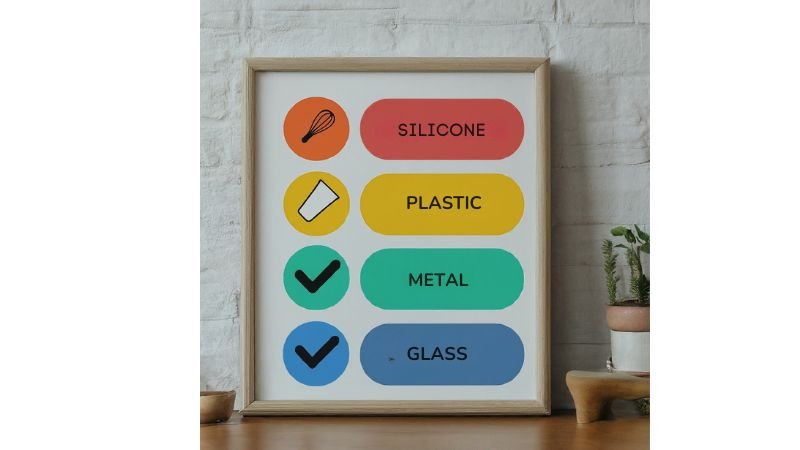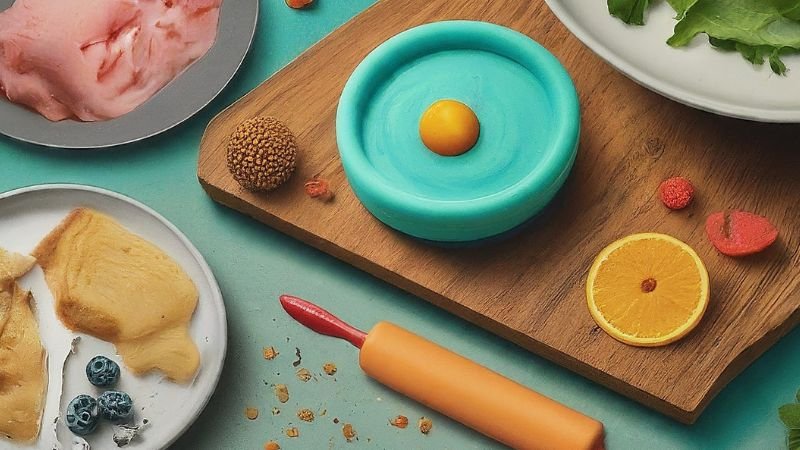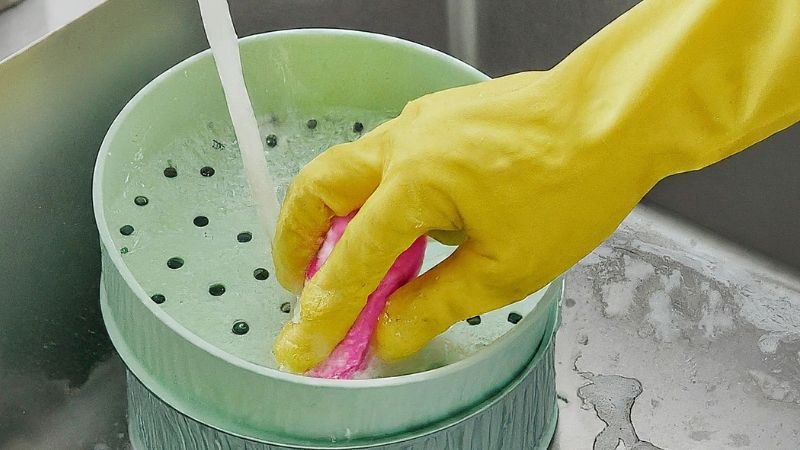Food safety is a top priority, especially regarding kitchenware. With the rising popularity of silicone bakeware and storage containers, many wonder if silicone can leach harmful substances into food. Ensuring that silicone is safe and reliable for kitchen use is crucial.
Silicone is widely regarded as one of the safest materials for food contact. Research indicates that food-grade silicone does not release harmful chemicals into food, even at high temperatures. This makes it an excellent choice for baking, cooking, and food storage. Unlike some plastics, silicone is chemically stable and does not react with food or drinks. Using high-quality, food-grade silicone products helps mitigate any potential risks.
Understanding silicone’s safety in food applications is essential. Let’s explore the details of silicone, its safety, and its interaction with food.
What is Food-Grade Silicone?
Food-grade silicone is a type of silicone that meets strict safety standards for use in food preparation and storage. It is non-toxic, odorless, and resistant to high temperatures. This type of silicone is free from fillers, additives, and chemicals that could potentially leach into food.
Characteristics of Food-Grade Silicone
- Non-Toxic: It does not contain harmful chemicals that can contaminate food.
- Heat Resistant: Can withstand high temperatures without breaking down or releasing substances.
- Flexible and Durable: Retains shape and integrity over a wide range of temperatures.
According to the FDA, food-grade silicone is safe for use in food contact applications, making it a preferred material in kitchens.

How Does Silicone Compare to Other Materials?
When considering food safety, silicone is often compared to other materials such as plastic, metal, and glass. Each material has its own set of advantages and potential drawbacks.
Silicone vs. Plastic
- Chemical Stability: Unlike many plastics, silicone does not break down into harmful components.
- Temperature Tolerance: Silicone can withstand much higher temperatures than plastic without deforming or releasing chemicals.
Silicone vs. Metal
- Flexibility: Silicone is more flexible than metal, making it ideal for bakeware and molds.
- Non-Reactive: Unlike some metals, silicone does not react with acidic or alkaline foods.
Silicone vs. Glass
- Durability: Silicone is less likely to break compared to glass.
- Weight: Silicone is lighter and more portable than glass, making it convenient for storage and travel.
Research shows that silicone is one of the most stable and safe materials for food contact when compared to plastic and metal alternatives.
Can Silicone Leach Chemicals?
A key concern with any kitchenware is whether it can leach harmful chemicals into food. Silicone, particularly food-grade silicone, is designed to avoid this issue.
Studies on Silicone Leaching
- Laboratory Tests: Extensive tests have been conducted to determine if silicone leaches any substances into food. The results consistently show that high-quality, food-grade silicone does not leach chemicals, even under high heat.
- Long-Term Use: Studies also indicate that silicone remains stable and safe over long-term use, maintaining its integrity and non-toxic properties.
A comprehensive review of silicone’s safety in food applications concluded that it does not pose a significant risk of chemical leaching.

What Are the Best Practices for Using Silicone in the Kitchen?
To ensure the safety and longevity of your silicone kitchenware, it’s important to follow some best practices. Proper use and maintenance can help prevent any potential issues.
Tips for Safe Use
- Choose High-Quality Products: Always opt for food-grade silicone products from reputable manufacturers.
- Avoid Extreme Temperatures: While silicone is heat-resistant, it’s best to avoid exposing it to temperatures beyond its rated limits.
- Regular Cleaning: Clean silicone products regularly with mild soap and water to prevent residue buildup.
- Inspect for Damage: Regularly check your silicone items for signs of wear and tear, and replace them if they become damaged.
Experts recommend following these best practices to ensure that your silicone kitchenware remains safe and effective for food use.
How to Identify Food-Grade Silicone?
Not all silicone products are created equal. It’s crucial to distinguish between food-grade silicone and lower-quality alternatives.
Identifying Features
- Certifications: Look for products that are FDA-approved or meet other relevant safety standards.
- Labeling: Food-grade silicone products are typically labeled as such.
- Price and Brand: Be wary of extremely cheap products or unknown brands, as these might not meet the necessary safety standards.
Industry standards dictate that food-grade silicone should be clearly labeled and come with relevant certifications to guarantee its safety.

Are There Any Health Risks Associated with Silicone?
The general consensus in the scientific community is that silicone is safe for food contact. However, understanding any potential health risks is important for making informed choices.
Potential Concerns
- Filler Materials: Low-quality silicone products may contain fillers that could potentially leach chemicals. Always choose high-quality, food-grade silicone to avoid this risk.
- Overheating: While rare, excessively high temperatures can degrade silicone and potentially release substances. Stick to the recommended temperature ranges.
Research confirms that high-quality food-grade silicone is generally free from significant health risks, provided it is used correctly and not exposed to extreme conditions.
Conclusion
Silicone, particularly food-grade silicone, is a safe and reliable material for kitchen use. It does not leach harmful chemicals into food, making it an excellent choice for bakeware, storage containers, and other kitchen items. By choosing high-quality products and following best practices, you can ensure that your silicone kitchenware remains safe and effective for years to come.
Understanding the properties and safety of silicone helps in making informed decisions about its use in your kitchen. Embrace the benefits of food-grade silicone for a safer, healthier cooking experience.